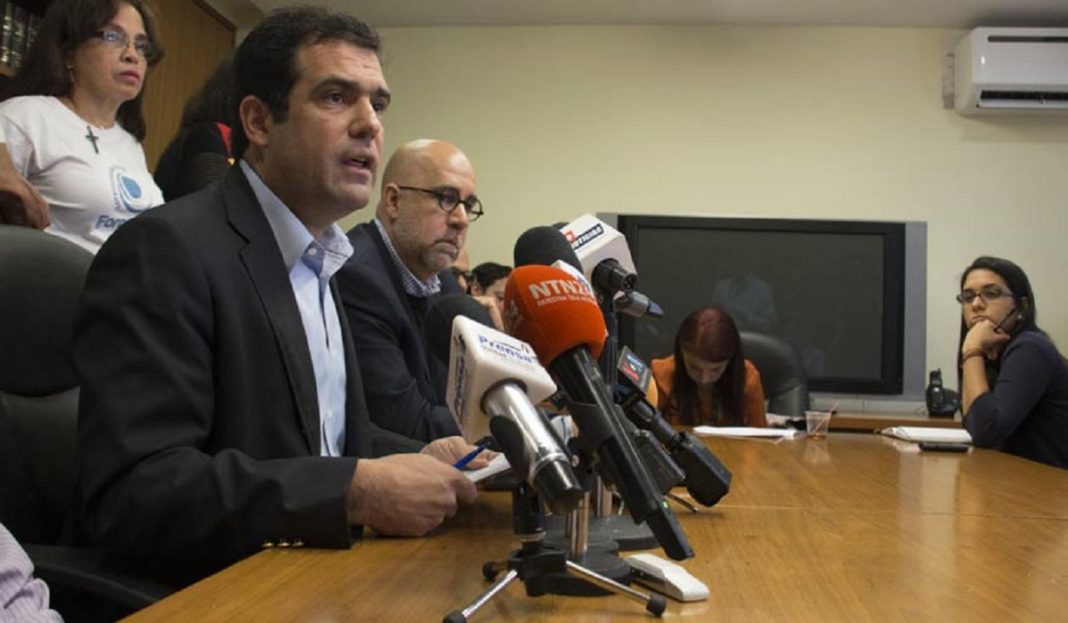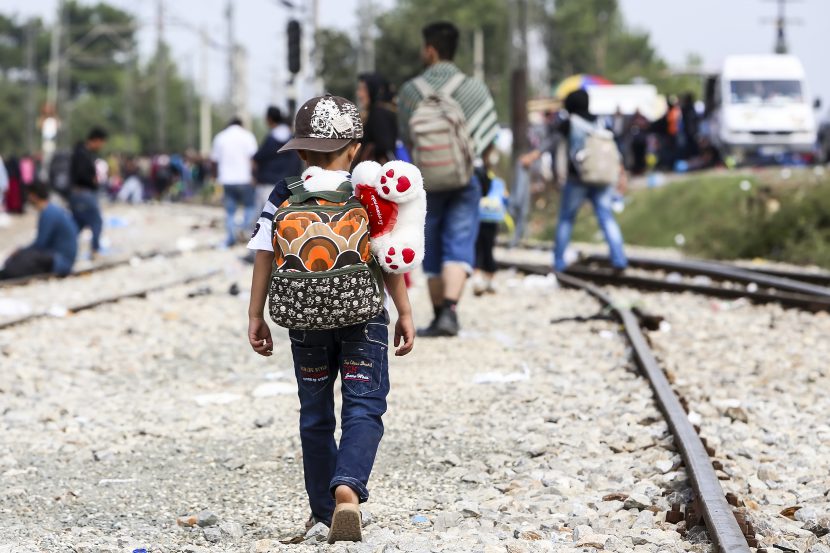Juan Berríos is a lawyer specialized in Constitutional Law, a doctor in Law, and a professor at the University of Zulia for thirteen years. He is no stranger to the persecution suffered by the Zulia NGO Azul Positivo; he speaks of his concern about the arrest of five humanitarian workers in the region but remains firm in his conviction to continue with the work in the defense of human rights of vulnerable populations that now grow in number precisely due to the suspension of some of the UN aid programs.
In 2012 he designed a community service program with the Institute of Political Studies and Public Law at the University of Zulia to teach human rights to children in schools. Then, during the protests of 2014 and the economic and social crisis of 2015, he became part of an initiative along with some of his teachers to document the situation. He then became a founding member of the Commission for Human Rights of the state of Zulia, Codhez, of which he is the current general coordinator.
—Codhez, which is a non-governmental organization in Zulia, has launched an intense campaign following the arrest of the five members of Azul Positivo. What is it aimed at?
We are supporting an allied organization. Basically, it is about expressing solidarity towards their situation and showing that what happens to them affects the work of the organized civil society in Venezuela, not only in the humanitarian space but also in the space of the organizations that do community work. In the case of Azul Positivo, they work in assisting the community, among other ways, through a feeding program. So, the campaign goes in two directions: asking for the release of our colleagues and making the population aware of the work of the organization because many times people do not understand the role of non-governmental organizations, what we do and the perils of our job. Part of the work is framed in a humanitarian response plan that the United Nations coordinates through its Office for the Coordination of Humanitarian Affairs (OCHA) through various projects and that has a presence in Venezuela along with other UN agencies such as UNHCR or Unicef. We also aim at showing that other international organizations are working in Venezuela in support of vulnerable populations such as Caritas, Save The Children and Venezuelan organizations, with local or national reach, that partner with these international non-governmental organizations or the United Nations to carry out these humanitarian response projects. The term “humanitarian aid” has recently become politicized because some people think that it is linked to a political party or movement, but that is not the case; these programs have been running for years without political-partisan conditions.
—However, there has been a political intention in showing that obtaining resources from these multilateral organizations to serve the vulnerable population is a crime, to the point that the five workers of the NGO Azul Positivo were accused of “money laundering” and “criminal association”.
—If people check Azul Positivo’s accounts on social media they will see that they have even worked in HIV programs together with the Zulia State Health Secretariat; this shows that the beneficiaries of their work have nothing to do with partisan politics because it is humanitarian work.
– As a human rights defender, how do you feel about the situation of these humanitarian workers?
—I believe that organized civil society, in general, is at risk in Venezuela, it is facing a serious situation. They are not the first humanitarian workers to experience persecution, it has happened before to other organizations, even though it is the first time that there is prosecution; we are all at risk.

– Why do you think the Judicial Power in Venezuela does not hesitate to jail humanitarian workers and accuse them of criminal association?
—We don’t know, we’ve thought about it a lot and we don’t have an answer. Not even the United Nations can find an answer, they are just as surprised. I think the problem is international cooperation.
—Do you think that, as a result of the case of Azul Positivo, international organizations and other international cooperation agencies should rethink the way to collaborate with Venezuelan organizations?
—Yes, of course, they have to, and in general, all organizations that work in coordination with international cooperation organizations must rethink how to continue doing their work for the most vulnerable because it is as the darkness suddenly fell upon us. You could feel the night was coming, but this was abrupt. Risks can arise in any country, but we were not expecting it to go from yellow to red so abruptly, given that in recent years negative ideas about civil society, its representativeness and legitimacy have been fostered. Perhaps one of the first spaces that suffered this discredit was the field of organizations dedicated to electoral matters, such as Queremos Elegir and Súmate, and then it progressed to other areas until reaching the humanitarian space.
—In the last months of 2020, several human rights organizations, activists and defenders suffered some kind of persecution or harassment. How can we keep up the work and advance in the projects we have already started?
—The operations of the organizations that work with cash transfers or the contribution of goods and services to the communities now become more complex; the United Nations is seeking ways to continue providing support to so many people who currently receive help to feed themselves.

– Could networking contribute to this goal?
—Networking has been a good initiative to strengthen the reach of our work; In fact, Redhez – a network of about 10 organizations of which we are part- has been an experience of articulating efforts to align actions such as the campaign to make the situation of Azul Positivo visible, among others.
-What are your expectations regarding the visit of the special rapporteur on the impact of the sanctions?
—Well, let’s hope she takes some time to listen to the independent civil society organizations and look further because although the impact of the sanctions cannot be ignored, the truth is that the emergency has existed before the sanctions. I think many elements go beyond the cause-effect narrative, and we hope the rapporteur can see the paradox: there are sanctions, there is a crisis, and whoever dares to assist may be persecuted, as has happened to Azul Positivo.
—Considering all your comments and the increasing risks, how do you see the current situation of the defense of human rights in Venezuela, is it worth continuing to document, monitor, report, and denounce the violations?
—Yes, of course, this is a job that cannot stop, we must continue to voice out what is happening, we cannot be stuck in the attacks, we will probably have to rethink some ways of delivering the message, but we must voice out what is happening: that the civic space for organizations to document and report is shrinking, that the humanitarian space to help the ever-increasing number of people in need is also shrinking, that we are also in a situation we never expected to be, we had other expectations about life and about how the country should be, a fair and egalitarian country. Although many people in many fields are involved in reversing that situation and trying to improve things, there is also a very negative force that tends to normalize and which we must prevent from becoming something normal because Venezuelans deserve to live with dignity and that implies that everyone’s rights and freedoms are respected.
– What challenges have the long quarantine implied to Codhez’s work?
—It has been quite a challenge, a very difficult one, and not only because of the virus itself, which is already challenging but because of other situations that have arisen such as the fuel shortage and the failures in public services such as water and electricity that have hit the state of Zulia especially hard. We had to get used to all that, especially those who do on-site work. Despite this, we did a good job of documentation and visibility. However, actions such as the Human Rights Fair had to be moved online, which was a challenge in a country with limited access to the internet that prevented us from reaching the people who are being left behind by poverty, for example.
Translated by José Rafael Medina




